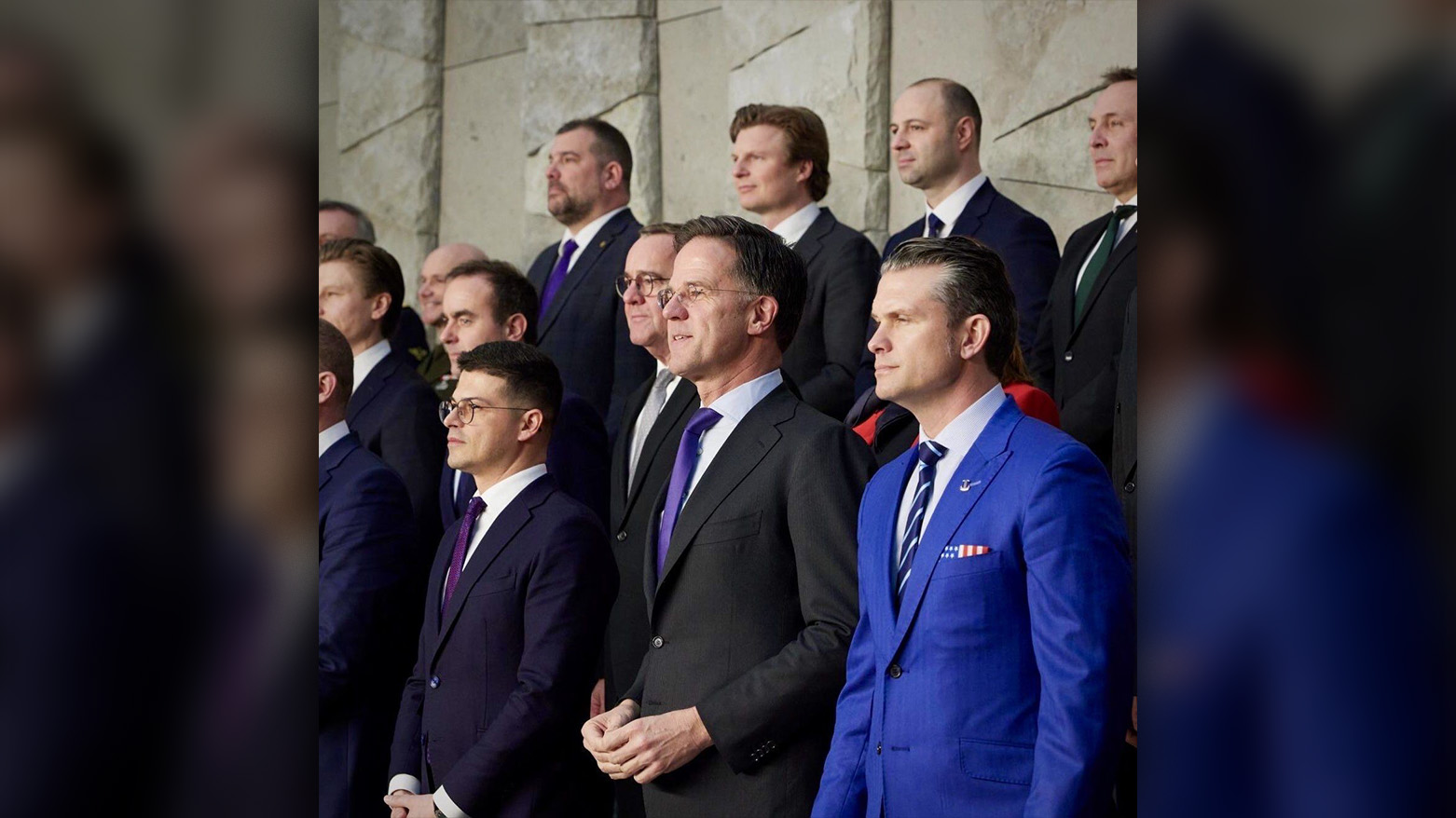NATO Defense Ministers Commit to Increased Spending and Continued Support for Ukraine
Meeting in Brussels sets the stage for The Hague Summit, emphasizing bolstered deterrence and transatlantic unity.

ERBIL (Kurdistan24) – The North Atlantic Treaty Organization (NATO) Defense Ministers concluded their meeting in Brussels on Thursday, laying the groundwork for the forthcoming NATO Summit in The Hague this June.
Welcoming U.S. Secretary of Defense Pete Hegseth to his inaugural NATO meeting, Secretary-General Mark Rutte conveyed, "Secretary Hegseth delivered a clear message: America's unwavering commitment to a robust NATO Alliance and the expectation that all Allies share the burden equitably."
The ministers evaluated advancements in strengthening NATO's deterrence and defense capabilities, focusing on comprehensive defense plans endorsed by all member nations. "To fully implement these plans, we require enhanced military capabilities, necessitating a substantial increase in defense spending," Rutte emphasized. "Our discussions today reflect a collective acknowledgment among Allies of the imperative to invest significantly more."
Since 2014, European Allies and Canada have collectively augmented their defense budgets by over $700 billion. In 2024 alone, non-U.S. Allies invested $485 billion in defense, marking a 20% rise from the previous year, with two-thirds of Allies now allocating at least 2% of their GDP to defense. Rutte anticipates further increases in 2025, recognizing the progress achieved while underscoring the necessity for continued efforts.
The ministers also deliberated on enhancing the defense industrial base across the Atlantic, acknowledging the need for a wartime mindset to ensure credible deterrence and defense amid escalating security challenges.
During the NATO-Ukraine Council session, Ukrainian Defense Minister Rustem Umerov joined the discussion on the critical importance of sustained support for Ukraine. "Continued assistance is vital to bring this brutal war of aggression to a just and lasting conclusion," Rutte stated. While NATO pledged €40 billion for Ukraine in 2024 at the Washington Summit, actual security assistance exceeded expectations, surpassing €50 billion, with nearly 60% contributed by Europe and Canada.
"This clearly demonstrates that Europe and Canada are assuming a larger share of the transatlantic burden-sharing," Rutte concluded.
In recent developments, the Trump administration has introduced a new policy toward Ukraine, aiming to expedite peace negotiations and reassess the U.S. role in the conflict. President Donald Trump has engaged in direct discussions with Russian President Vladimir Putin, expressing intentions to initiate immediate negotiations to resolve the ongoing war. This approach signifies a departure from previous U.S. policies, emphasizing a more direct involvement in peace talks.
European leaders have exhibited a range of reactions to the U.S. policy shift. French President Emmanuel Macron has convened an emergency summit with European leaders, including UK Prime Minister Keir Starmer, to address concerns over being sidelined in the peace negotiations. The summit aims to ensure that European interests and Ukraine's sovereignty are adequately represented in any forthcoming agreements.
Ukrainian President Volodymyr Zelenskyy has emphasized the necessity of including Ukraine and European nations in the peace process, advocating for comprehensive security guarantees and collaborative exploitation of Ukraine's valuable resources. This stance reflects a desire for a balanced approach that considers the interests of all parties involved.
The Trump administration's proactive engagement in seeking a resolution to the Ukraine conflict underscores its commitment to achieving peace and stability in the region. By proposing innovative solutions and encouraging equitable burden-sharing among allies, the U.S. aims to foster a collaborative environment conducive to a lasting resolution.